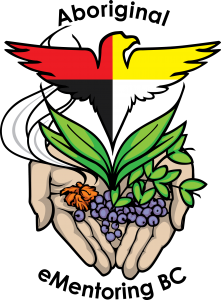Building Pathways to Health Careers for Aboriginal youth
Purpose

Aboriginal eMentoring BC (eMentoring) connects Aboriginal youth between Grades 6-12 with mentors in post-secondary programs from across British Columbia. The aim of the project is to develop an online mentoring intervention for Aboriginal youth and evaluate its effectiveness in supporting high school graduation and transition into post-secondary programs in health sciences, as well as other fields.
eMentoring is funded by an Operating Grant for Aboriginal Health Intervention through the Canadian Institutes of Health Research.
Background
Education is widely considered the most important social determinant of health because of its power to determine future employment, income and social status. High school graduation in particular is a critical stepping-stone to post-secondary education and the workforce, and is associated with better overall health outcomes.
By targeting Aboriginal students before they leave the secondary school system, mentoring can serve as a key health intervention for youth at a critical stage in their developmental pathway. Over three decades of research has shown mentoring to have a positive effect on a wide variety of youth outcomes, but particularly in improving school attitudes. Electronic mentoring or ‘eMentoring’ has emerged as a popular alternative to face-to-face mentoring and deserves to be explored in further detail as a timely alternative to traditional mentoring.
Overview
eMentoring has connected over one hundred Aboriginal youth with mentors in post-secondary programs from across the province. Over the course of at least one academic semester, mentors and mentees engage with a semi-structured online curriculum called the “Personal Quest”. The Quest is designed to introduce mentees to a variety of career and educational options in health sciences in a developmentally appropriate way that resonates with Aboriginal ways of knowing and learning. The Personal Quest stimulates discussion and fosters positive mentor-mentee relationships, enabling mentees to realize their potential and find the support, knowledge and confidence they need to envision their own career path and succeed in college or university.
The research component of the project seeks to understand best practices for implementing an eMentoring model in Aboriginal communities; efficacy of technology-enabled engagement; evaluation of eMentoring as a viable alternative to traditional mentoring; and efficacy of eMentoring in promoting awareness, interest and enrollment in post-secondary health science programs.
Academic Research Team
- Sandra Jarvis-Selinger, Assistant Dean, Faculty Development, Director of Curriculum, MD Undergraduate Education and Associate Professor, Department of Surgery
- Kendall Ho, Associate Professor, UBC Department of Emergency Medicine, VCHRI and Director, UBC eHealth Strategy Office
- Helen Novak Lauscher, Assistant Director, UBC eHealth Strategy Office
- Lee Brown, Former Director, UBC Institute for Aboriginal Health
- Lesley Bainbridge, UBC College of Health Disciplines
- Robert Woollard, UBC Department of Family Practice
- James Andrew, Aboriginal Programs Coordinator, UBC Department of Family Practice
- Tim Michel, SFU Faculty of Education
- Michal Fedeles, Director, SFU Continuing Health Education
Contact
For more information about Aboriginal eMentoring BC, please visit the program website. For general inquiries, please email aboriginal.eMentoring@ubc.ca.